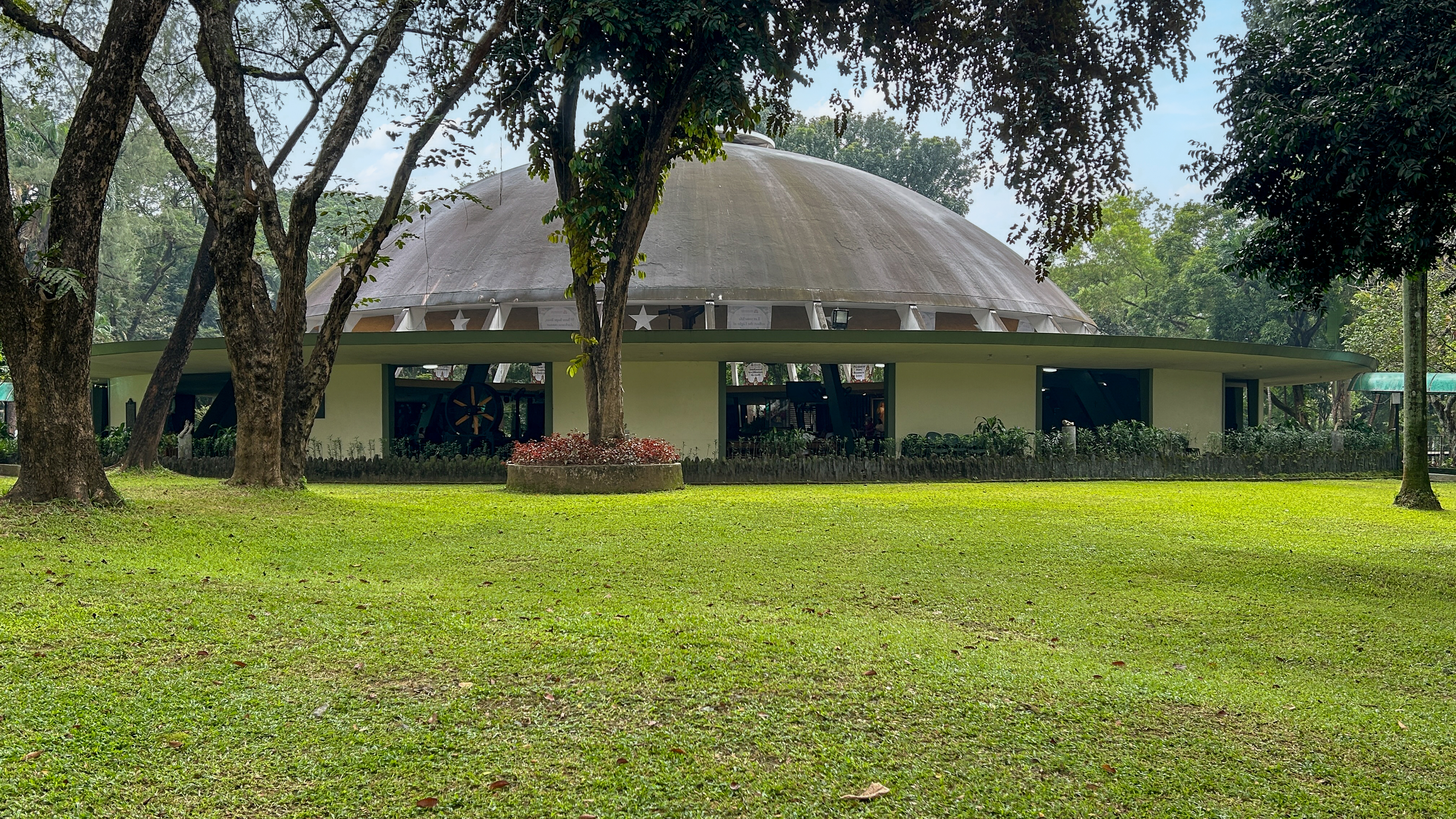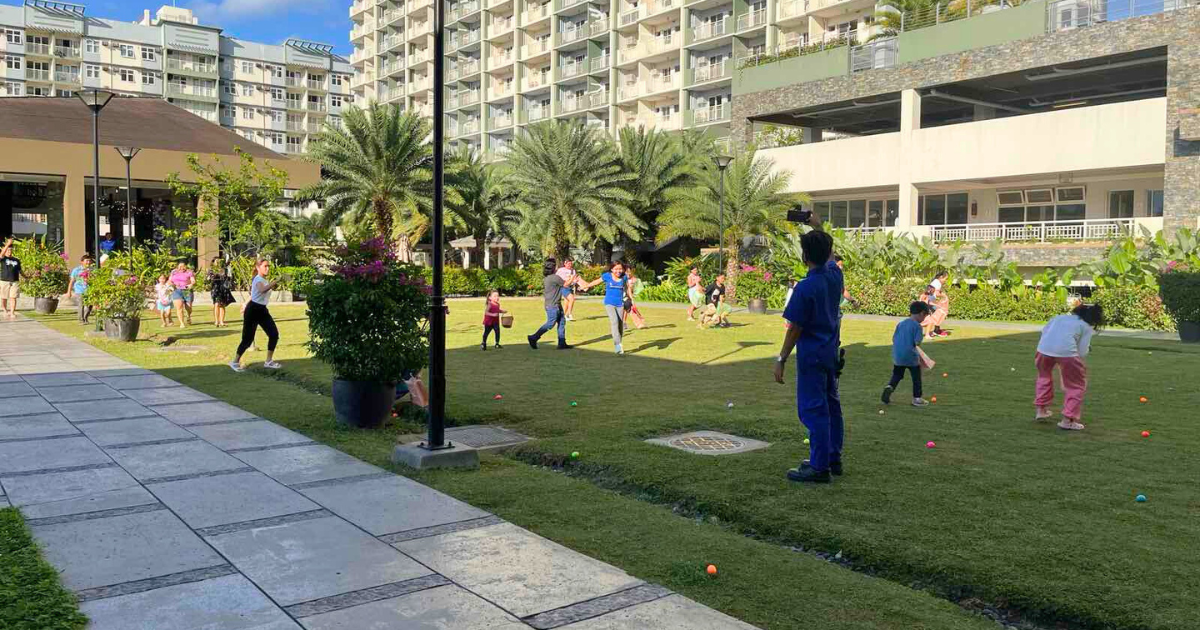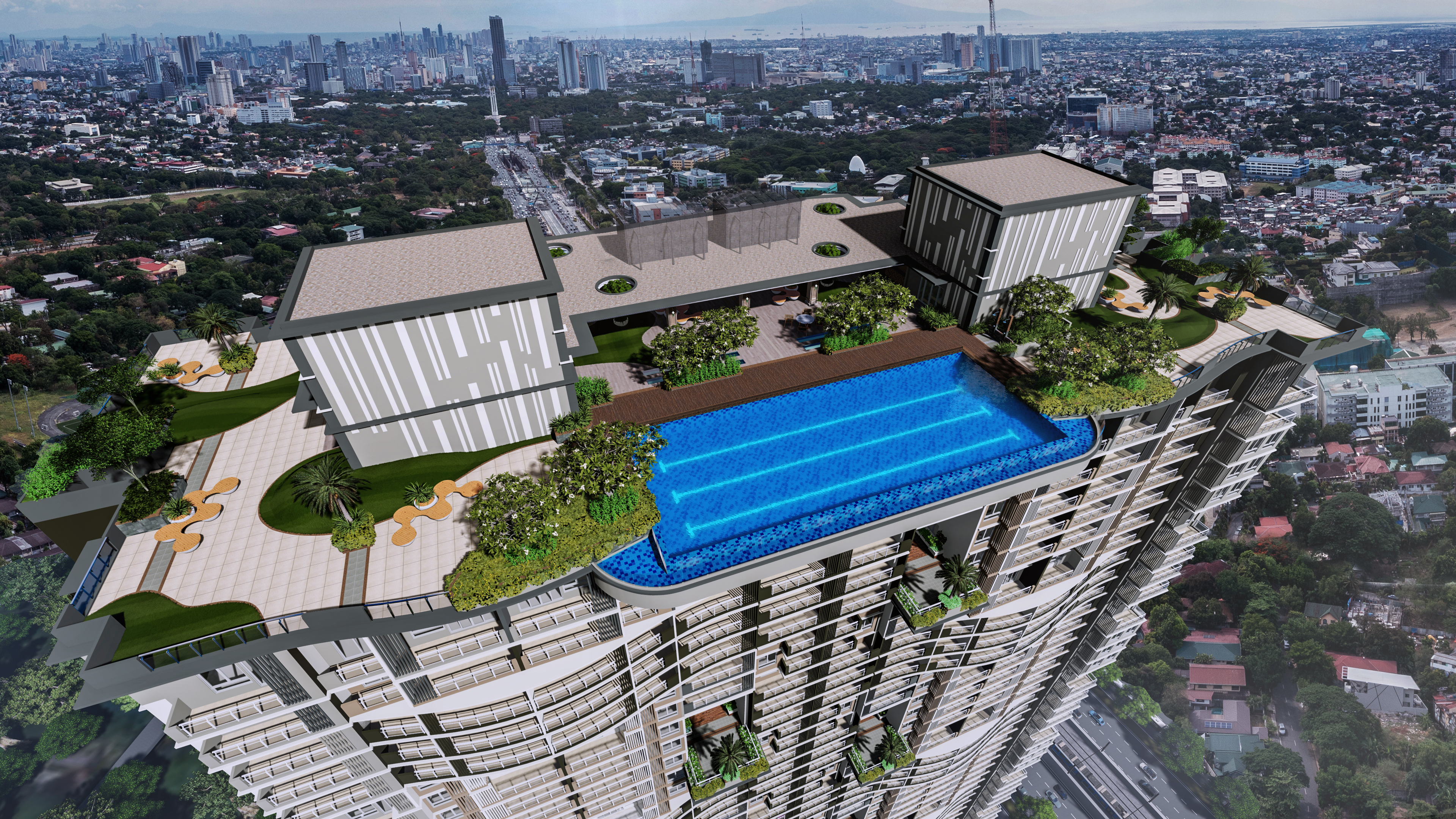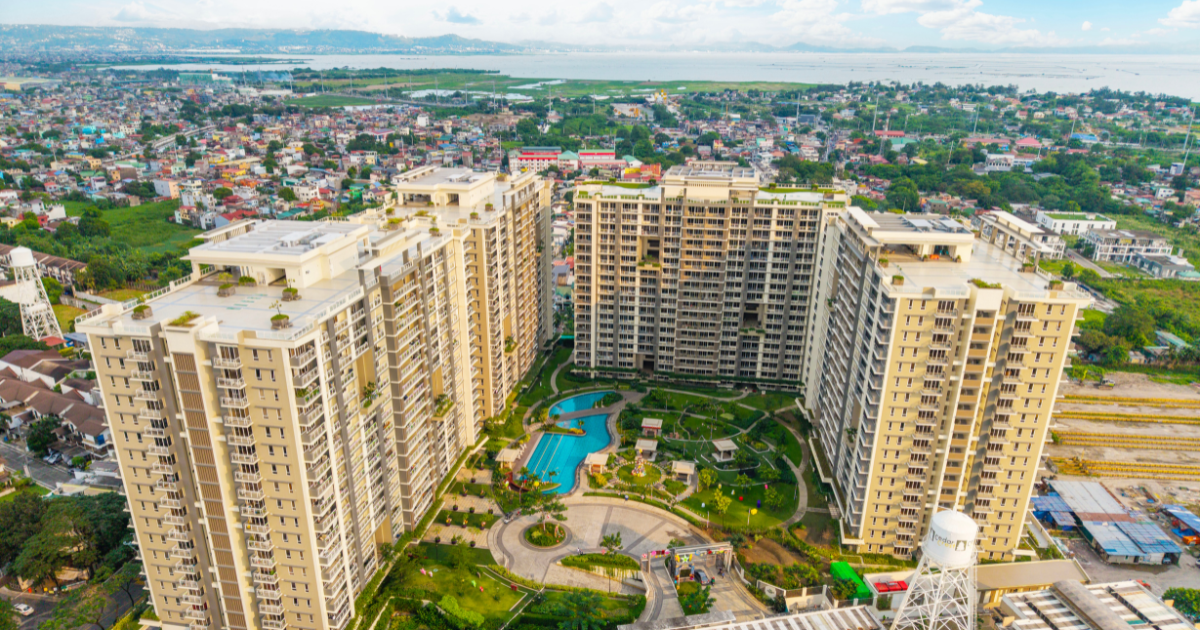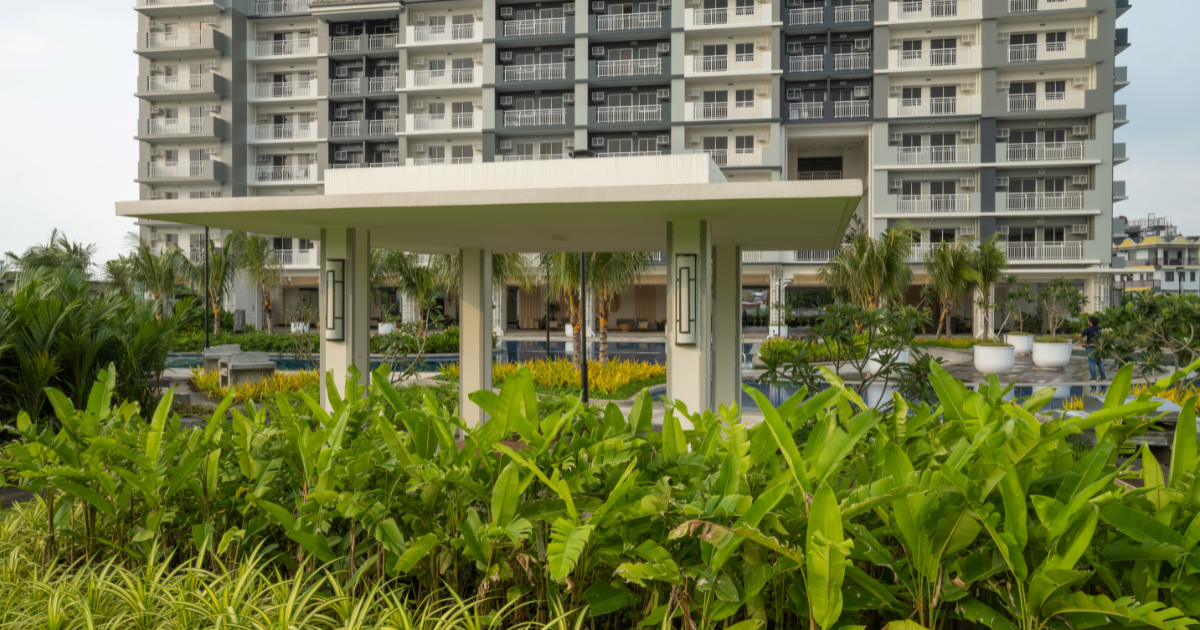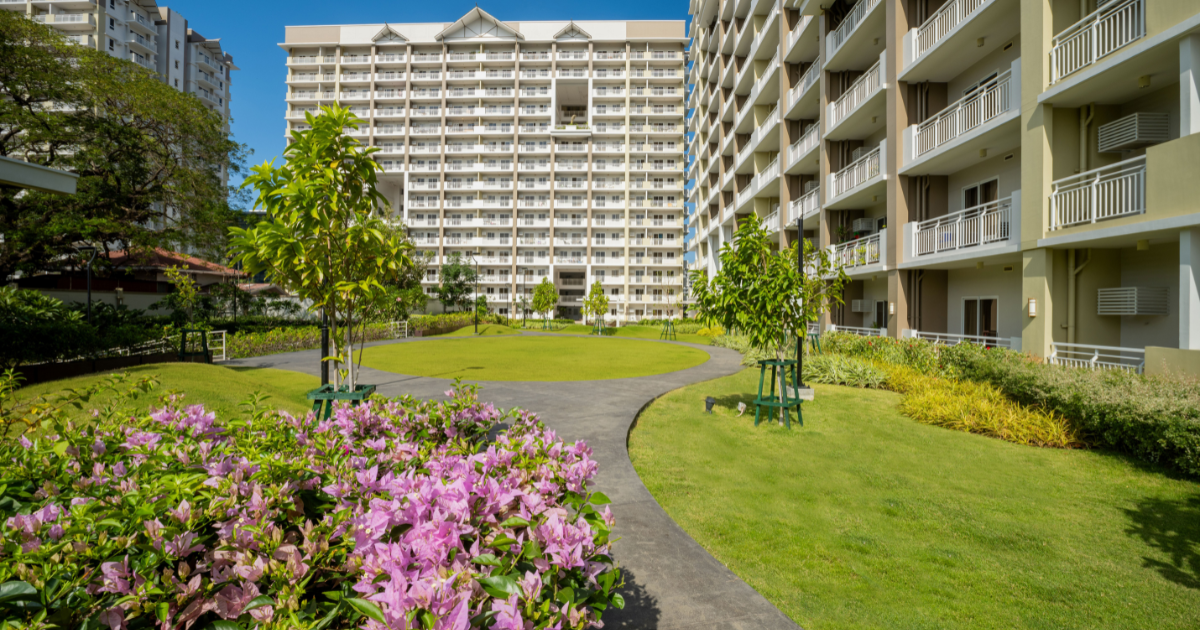Your Guide on Safety and Security Features of a Condo Building
Why is living in a condo property one of the safest housing options in the Philippines?
In the Philippines, safety is a critical consideration in housing decisions due to various factors, including urban crime rates, natural disasters, and overall community well-being. Choosing a safe living environment is essential for residents' peace of mind and quality of life.
A condo residence is a recommended option for its controlled access, advanced security systems, emergency preparedness, community vigilance, and location.
Condo communities often feature gated entrances and security personnel, restricting access to residents and authorized visitors, which helps deter crime. The buildings and common areas are equipped with surveillance cameras, intercoms, and smart lock systems, providing comprehensive monitoring and quick response capabilities.
Condos typically have well-defined emergency protocols, including fire safety measures and disaster preparedness plans, which are essential in a country prone to natural disasters.
Another factor that helps ensure safety is the close-knit nature of condo communities encourages residents to look out for one another, fostering a sense of collective responsibility for safety.
Finally, most condo communities are situated in urban areas with access to essential services, including healthcare and law enforcement, ensuring prompt assistance during emergencies.
DMCI Homes offers all of these safety and security benefits in its premier projects across the country. You may choose from a selection of properties for sale, for rent with preselling, and for rent-to-own (RTO).
This guide discusses everything about condo security, which can help you make an informed decision in choosing your DMCI Homes residence.
The importance of security in condo living
Condo living offers security benefits that apartment rentals typically don't, such as 24/7 security, roaming guard and CCTV cameras in common areas, among others. Since safety is a priority for everyone, especially families, a condo residence is a good housing option.

Photo Courtesy of Vlada Karpovich via Pexels
Why safety is a key selling point for condo developers and buyers
Safety is a key selling point for condo developers and buyers for its attractiveness to buyers.
In a competitive real estate market, enhanced safety features, such as security systems and controlled access, make condos more appealing to potential buyers, especially families and individuals concerned about their well-being.
Properties with strong safety measures tend to maintain or increase their value over time, making them a smart investment for buyers.
Moreover, buyers prioritize safety for personal security, leading to greater satisfaction and comfort in their living environment.
How safety influences property values and community well-being
Homeowners' associations (HOAs) and property management play crucial roles in maintaining safety protocols in a condo by implementing security measures, overseeing regular maintenance and upgrades, and communicating with the community.
- Implementation of security measures - HOAs are responsible for establishing and enforcing security policies, such as surveillance systems, access controls, and emergency response plans.
- Regular maintenance and upgrades - Property management ensures that safety equipment, like fire alarms and sprinklers, is regularly inspected and maintained, keeping security measures effective.
- Community communication - HOAs facilitate communication among residents regarding safety updates, community rules, and emergency procedures, fostering a culture of awareness and vigilance.
By prioritizing safety, developers, HOAs, and property management create a secure living environment that enhances property appeal and resident satisfaction.
Comprehensive condo security features

Photo Courtesy of AS Photography via Pexels
CCTV and smart camera systems in condo buildings are essential tools for enhancing security. They provide continuous surveillance, allowing for real-time monitoring of common areas, entrances, and exits.
Condo communities have real-time monitoring which enables security personnel or management to quickly identify suspicious activities and respond promptly.
Remote access, another security feature, allows authorized users to view camera feeds from anywhere, providing peace of mind to residents and management alike.
Moreover, integration with local authorities enhances safety by facilitating swift communication during emergencies. When incidents occur, footage can be shared directly with law enforcement, aiding investigations and potentially preventing future crimes.
Together, these features create a deterrent effect against criminal activities, as the presence of surveillance technology makes it riskier for offenders to operate in the area. This proactive approach promotes a safer living environment, increasing resident satisfaction and property value.
Gated access and controlled entry points
Gated communities limit access to authorized residents and visitors through controlled entry points, ensuring that only permitted individuals can enter. This enhances security and fosters a sense of safety among residents. Common entry systems in condo residences include the following:
- Key cards - Residents use cards to gain access, which can be easily deactivated if lost or stolen, enhancing security.
- Biometrics - Systems like fingerprint or facial recognition provide a high level of security, as they rely on unique personal characteristics, making unauthorized access difficult.
- Smart locks - These can be controlled via smartphones or keypads, allowing for remote access management and temporary entry codes for guests.
Aside from these equipment, condo property management impose Visitor Registration Systems to enhance security by tracking who enters the community, requiring visitors to check in and be verified before access is granted. This helps prevent unauthorized entry.
Finally, restricted access to common areas ensures that only residents and their guests can use amenities, reducing the risk of crime and fostering a sense of community among residents.
On-Site Security Personnel
Condo communities help ensure residents’ peace of mind with 24/7 security. There are trained security guards on-site for immediate response, crime deterrence, conflict resolution, surveillance monitoring and emergency preparedness.
- Immediate response - Security guards can quickly respond to incidents, emergencies, or suspicious activities, reducing response times compared to waiting for law enforcement.
- Deterrence - The presence of trained guards acts as a deterrent to potential criminals, making them think twice before attempting any unlawful activities.
- Conflict resolution - Trained security personnel are equipped to handle conflicts and disputes among residents or visitors, promoting a peaceful community atmosphere.
- Surveillance monitoring - Guards can effectively monitor surveillance systems and patrol the property, ensuring all areas are secure and addressing any issues that arise.
- Emergency preparedness - Professional security teams are trained to handle emergencies, providing immediate assistance in crises like medical emergencies, fires, or security breaches. They know protocols for evacuation and can coordinate with local authorities effectively.
On-site security personnel conduct regular patrols of the property, ensuring all areas are monitored for suspicious activities and addressing any potential security concerns proactively. They can interpret data from CCTV and alarm systems, and respond quickly, which is more efficient than relying solely on residents to report incidents.
Secure parking facilities

Photo Courtesy of Brett Sayles via Pexels
Vehicle safety is crucial for condo residents, as many rely on their vehicles for daily commutes and personal activities. Knowing their cars are secure contributes to overall peace of mind and enhances their sense of safety within the community.
Condos secure parking lots using gates, surveillance, and restricted access to enhance safety. Gates prevent unauthorized entry, while surveillance cameras monitor activities, deterring theft and vandalism. Restricted access limits parking lot use to residents and authorized visitors, further protecting vehicles.
When comparing secure parking in condos to open parking in apartments and single-family homes, secure parking offers significant advantages such as:
- Enhanced security - Gated and monitored parking lots reduce the risk of theft and damage compared to open parking, which is more vulnerable to crime.
- Controlled access - Residents have better control over who can access the parking area, minimizing the chances of unauthorized vehicles.
- Community trust - Secure parking fosters a sense of community, as residents feel safer knowing their vehicles are protected.
In summary, secure parking is a vital feature of condo living, providing peace of mind and security that open parking options typically lack.
Well-designed security lighting
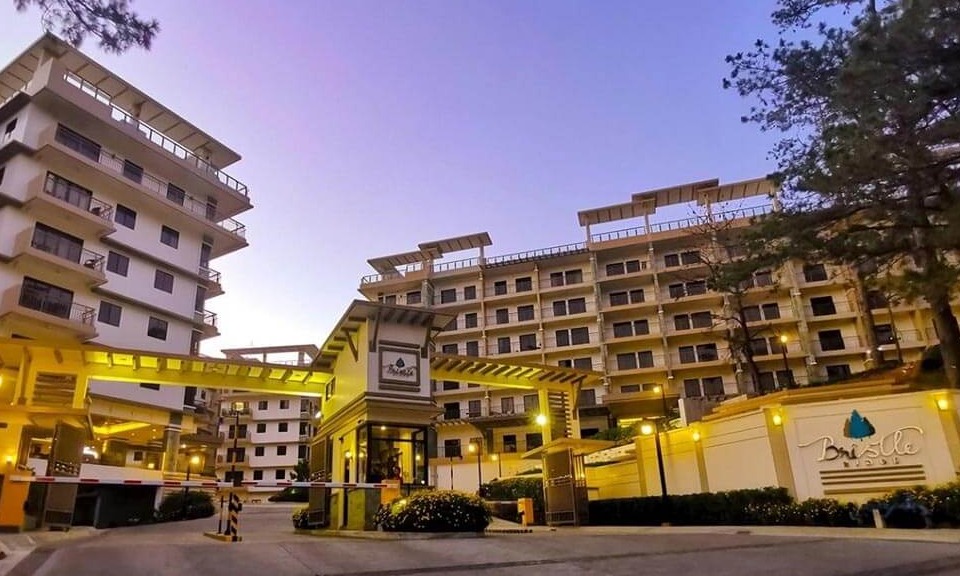
Photo Courtesy of DMCI Homes
Condo communities are equipped with exterior lighting which enhances visibility and helps deter potential offenders. Well-lit areas make it more difficult for criminals to act without being seen, increasing the likelihood of detection.
Placement of lights is crucial for effectiveness. Lights should be strategically positioned in:
- Entrances - Ensuring that entry points are well-lit helps residents feel safe and makes it easier to identify visitors.
- Parking areas - Bright lighting in parking lots reduces the risk of theft and vandalism, providing a secure environment for residents as they arrive or depart.
- Walkways - Illuminated walkways enhance safety for residents moving between buildings and common areas, reducing the chances of accidents and making it easier to spot any suspicious activity.
Motion-activated lights add an extra layer of security by illuminating areas when movement is detected. This not only alerts residents to potential intruders but also deters criminal activity, as the sudden lighting can startle offenders and draw attention to their presence.
Effective exterior lighting significantly enhances safety and security, making condo communities an ideal housing option.
Condo safety vs. Single-family homes
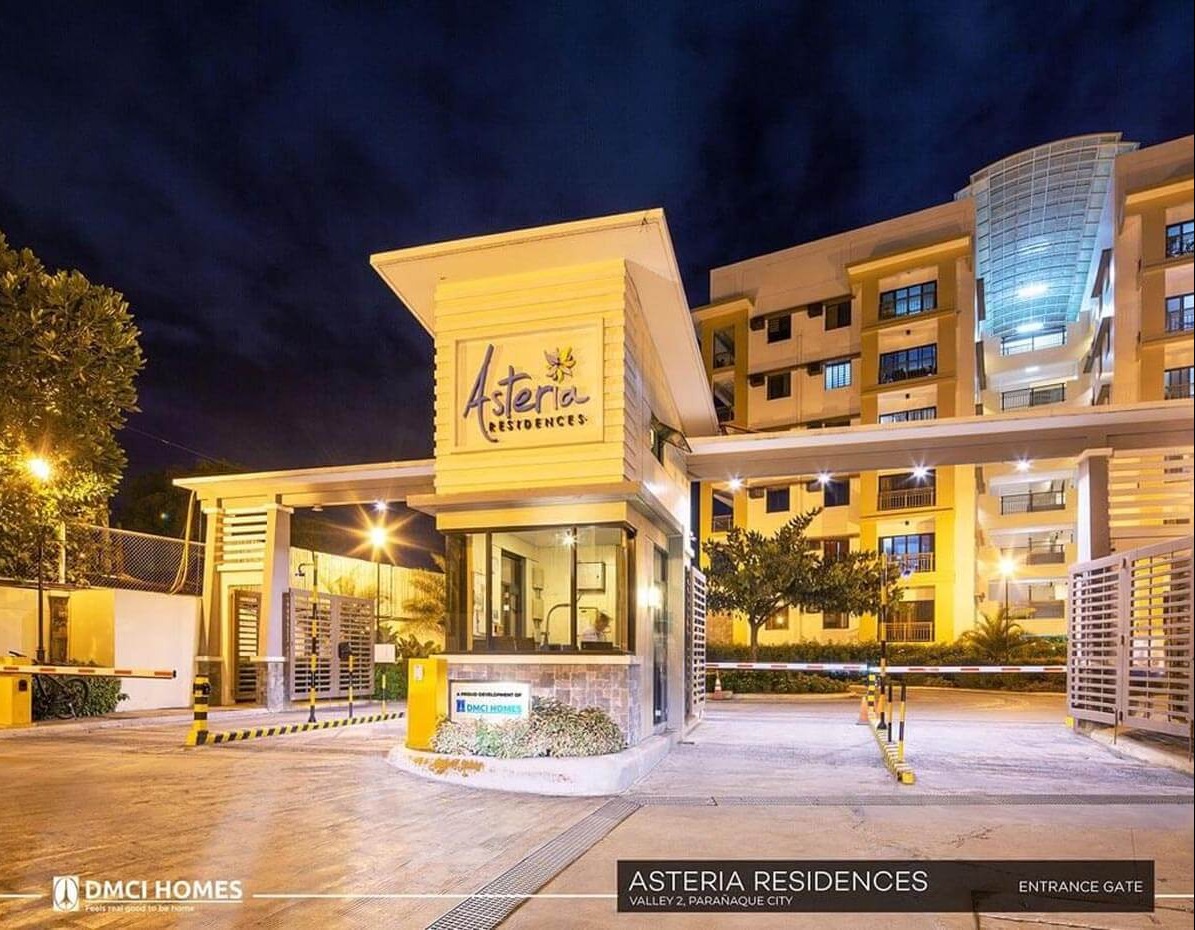
Photo Courtesy of DMCI Homes
While there are apartments and homes equipped with CCTV cameras, exterior lighting and even security guards, condos feature safety benefits that the former lack such as fewer access points, a built-in community surveillance, and professional security management.
Fewer access points
Condos typically have fewer vulnerable entry points compared to single-family homes due to their design and security features. Most condos have controlled access points, such as gated entries and security doors, which limit access to residents and authorized visitors. This centralized entry system reduces the number of potential access points, making it more difficult for intruders to find opportunities to break in.
Additionally, the presence of shared walls and proximity to neighbors means that suspicious activity is more likely to be noticed quickly, further deterring criminal attempts.
Finally, as mentioned above, restricted access makes condos harder to target for break-ins because unauthorized individuals cannot easily enter the property. This heightened security, combined with surveillance and on-site security personnel, creates an environment that is less appealing to potential burglars, as the risks of detection and apprehension are significantly higher.
Built-in community surveillance
The "neighborhood watch" effect in close-knit condo communities arises from the strong sense of community and mutual interest in each other's safety. Residents in these environments often know their neighbors well, fostering trust and communication.
Shared living spaces such as lobbies, gyms, and playgrounds encourage interaction and observation, making it easier for residents to notice unfamiliar faces or unusual activities. This communal living promotes a culture of vigilance, where residents feel a collective responsibility for their surroundings.
When suspicious activity is observed, residents are more likely to report it promptly, knowing their neighbors are invested in maintaining a secure environment. This proactive approach not only enhances security but also strengthens community bonds, making everyone feel safer and more connected.
Professional security management
Centralized management in condo systems ensures consistency in security protocols, as all areas are governed by the same standards and practices. It facilitates regular assessments and updates to security measures, incorporating the latest technologies and strategies to address emerging threats.
What are the differences between a self-managed home security and a professionally managed condo system? Here is a summary:
|
Self-managed home security |
Professionally-managed condo system |
|
Relies on individual homeowners to implement and monitor their own security measures, such as alarms and cameras |
Utilizes trained security personnel and centralized systems, providing a cohesive security strategy for the entire community |
|
Varies widely in effectiveness based on homeowner knowledge, commitment, and resources |
Ensures regular monitoring, maintenance, and upgrades of security measures, creating a robust protective environment |
|
May lack consistency in security practices across the neighborhood, leading to vulnerabilities |
Benefits from economies of scale, allowing for higher-quality equipment and technology that individual homeowners might not afford |
A professional security management adopts a collective approach that enhances overall safety, as residents benefit from a coordinated and professional security presence that self-managed systems may lack.
Condo safety vs. Apartment buildings

Photo Courtesy of Emma Bauso via Pexels
Living in a condo typically offers more advanced security compared to apartments due to the structure and management approach. There are integrated security systems, such as gated entrances, surveillance cameras, and on-site security personnel, providing a higher level of protection. The centralized management of condos allows for consistent implementation of these features, which are less common in many apartment buildings.
Higher investment in security
Homeowners’ Associations (HOAs) in condo communities play a role in boosting safety and security by investing in long-term security upgrades.
HOAs manage the interests of all residents, leading to a stronger commitment to maintaining a safe environment for the entire community.
HOAs have an interest in increasing property values of their properties. Enhancing security features contribute to the overall appeal of the property, which can boost resale values and attract potential buyers.
HOAs can allocate budgets for ongoing improvements, ensuring that security measures are regularly updated to address new threats and incorporate advanced technology.
Overall, the combination of collective management and a focus on long-term security investments helps create a safer living environment in condominiums compared to many apartments.
Greater ownership and accountability
Ownership fosters greater accountability than in leased properties, as condo owners are responsible for the safety of their property and the well-being of their neighbors. This sense of ownership leads to more active participation in safety protocols, including reporting issues, advocating for upgrades, and collaborating with the HOA to ensure that security measures are effectively enforced.
In contrast, renters may feel less compelled to engage with security protocols, as their residence is temporary, leading to a different level of commitment to community safety.
Here are the general differences between condo owners and apartment renters regarding security concerns:
- Investment in property - Condo owners have a financial stake in their property, which often leads to a heightened concern for security. They are more likely to prioritize safety measures that protect their investment compared to renters, who may not feel as personally invested in the property.
- Control over security measures - Owners typically have a say in the security features and protocols implemented in their buildings, while renters often have to rely on the landlord or property management for security decisions. This control allows owners to advocate for or implement specific safety improvements.
- Long-term responsibility - Condo owners are more likely to engage in long-term safety planning and community involvement, such as participating in HOAs, which focuses on maintaining and enhancing security measures over time.
Overall, condo communities, led by HOAs, foster a more consistent and reliable commitment to security maintenance.
Better maintenance of security systems
HOAs prioritize regular maintenance of security infrastructure as part of their responsibility to protect residents and maintain property values. HOAs typically allocate budgets specifically for security enhancements, ensuring that systems like surveillance cameras, access controls, and lighting are regularly updated and well-maintained. They often schedule routine inspections and upgrades to keep security measures effective and current.
In contrast, apartment buildings may experience deferred or minimal security updates due to landlord budgets. Landlords often prioritize cost-saving measures, which can lead to delays in maintenance and updates of security features. This reliance on a profit-driven model may result in reactive rather than proactive security management, leaving renters in less secure environments.
Emergency preparedness in condos
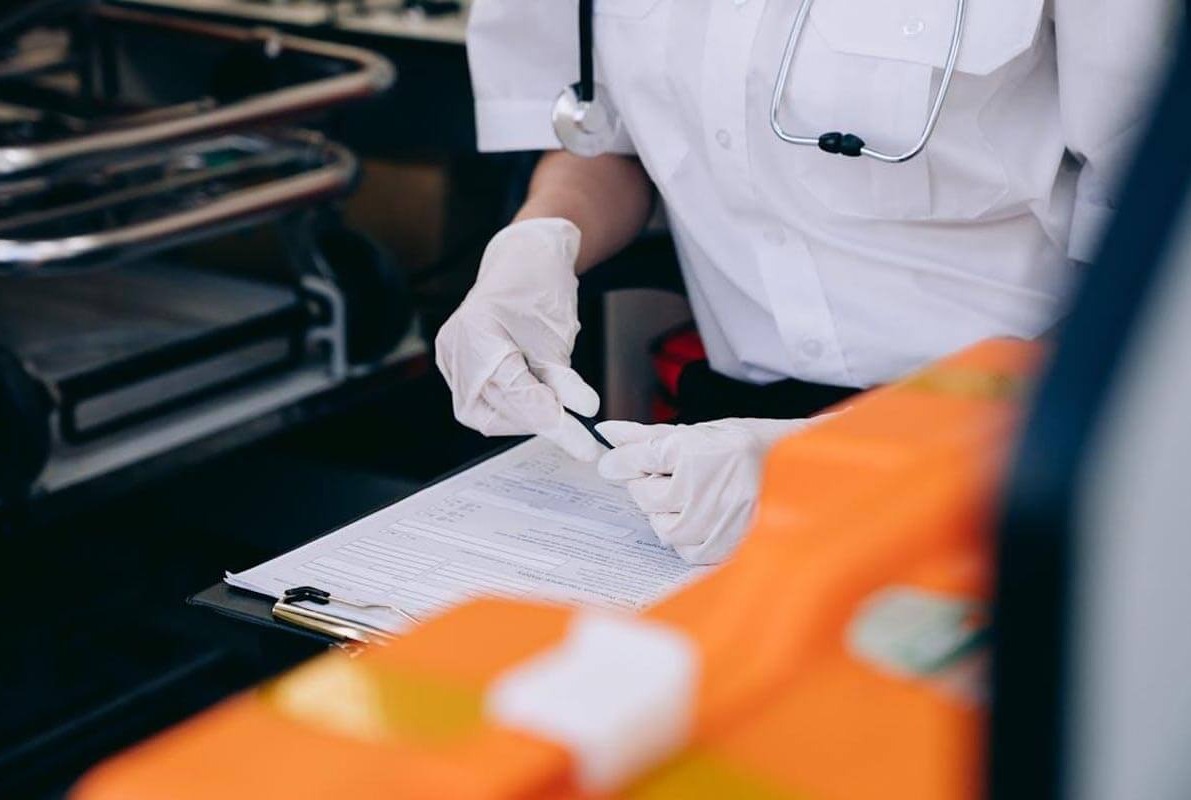
Photo Courtesy of Mikhail Nilov via Pexels
No one should be taking chances with safety and security. Condo living can help ease your worries when emergency strikes with the safety measures in place.
Fire safety measures
In condominiums, fire safety measures such as fire alarms, sprinkler systems, and fire escape plans are crucial for ensuring resident safety. Here is an overview of fire safety measures in condo residences:
- Fire alarms - Condos are equipped with interconnected fire alarm systems that can alert all residents simultaneously in the event of a fire. These systems are often monitored by a central station, ensuring quick response times.
- Sprinkler systems - Many condos are mandated to have automatic sprinkler systems that can suppress or extinguish fires before they spread, significantly reducing damage and risk to life. These systems are typically designed to cover common areas and individual units.
- Fire escape plans - Condos often have well-defined fire escape plans, including clearly marked exits, emergency lighting, and evacuation routes. Residents are usually educated about these plans through regular safety drills and communication from the HOA.
Here are ways on how condo fire safety measures surpass those in homes and apartments:
- Comprehensive coverage - The scale and design of condo buildings typically necessitate more sophisticated fire safety systems than those found in single-family homes or many apartment complexes. This includes extensive sprinkler systems and interconnected alarm systems that provide broader coverage.
- Regulatory standards - Condo projects are often subject to stricter building codes and regulations that require advanced fire safety measures, while some apartments may not meet the same stringent standards.
- Community focus - The collective nature of condos means that the HOA actively manages and invests in fire safety infrastructure, ensuring regular maintenance and updates. In contrast, individual homeowners or landlords may prioritize other maintenance needs over fire safety, leading to potential gaps in protection.
These factors contribute to a higher level of fire safety in condos, making them generally safer than single-family homes or many apartment buildings.
Natural disaster protocols
The Philippines is one of the most disaster-prone countries in the world. Filipinos experience earthquakes, volcanic eruptions, typhoons, floodings and drought almost regularly.
Condos handle natural disaster preparedness through a combination of safety measures, community planning, and effective communication strategies as follows:
- Safety measures
- Earthquakes - Condos are often built to meet specific seismic codes, with structural reinforcements to withstand tremors. Some may also conduct regular safety inspections and retrofitting.
- Typhoons - Many condos are equipped with storm shutters, reinforced windows, and secure roofs to protect against high winds. They may also have designated evacuation routes and plans in place.
- Floods- Condos in flood-prone areas often include elevated foundations and drainage systems to minimize water damage.
- Designated safe zones - Many condominiums establish designated safe zones within the building, such as interior hallways or reinforced areas, where residents can gather during a disaster for protection.
- Emergency kits - HOAs may recommend or provide emergency kits stocked with essentials like water, non-perishable food, first aid supplies, flashlights, and batteries. Residents are encouraged to prepare their own kits as well.
- Community-wide communication systems - Condos typically utilize community-wide communication systems, such as text alerts, emails, or bulletin boards, to disseminate emergency information and updates quickly. This ensures residents are informed about safety procedures, evacuation plans, and real-time alerts during disasters.
Overall, these coordinated efforts enhance the resilience of condo communities, ensuring residents are better prepared for various natural disasters.
Medical emergency response
Condos are often better prepared for medical emergencies due to the presence of on-site personnel and proximity to nearby hospitals. Here are common measures in place for medical emergencies:
- On-site personnel - Many condominiums employ security staff or management teams trained in basic first aid and CPR. They can provide immediate assistance during medical emergencies, stabilizing individuals until professional help arrives.
- Nearby hospitals - Condos are typically located in urban areas where hospitals and urgent care facilities are easily accessible, allowing for quick transport of residents in need of medical attention.
- Emergency buttons - Many condos are equipped with emergency buttons or call systems in common areas and individual units, allowing residents to summon help quickly in case of a medical crisis.
- On-call services - Some condo communities offer on-call medical services or partnerships with local health providers, enabling residents to receive immediate care or consultations without having to leave the building.
- First responders - Proximity to first responders, such as paramedics and fire departments, ensures that emergency services can arrive swiftly. On-site personnel can efficiently direct responders to the scene, facilitating faster assistance.
These combined resources and systems enhance the overall medical emergency preparedness in condo communities, ensuring that residents receive timely and effective care when needed.
Enhancing your condo safety: Resident tips
Aside from the many safety and security features and measures in condo communities, you can go the extra mile and upgrade your condo unit with smart home technology including the installation of smart locks, indoor cameras and motion sensors.
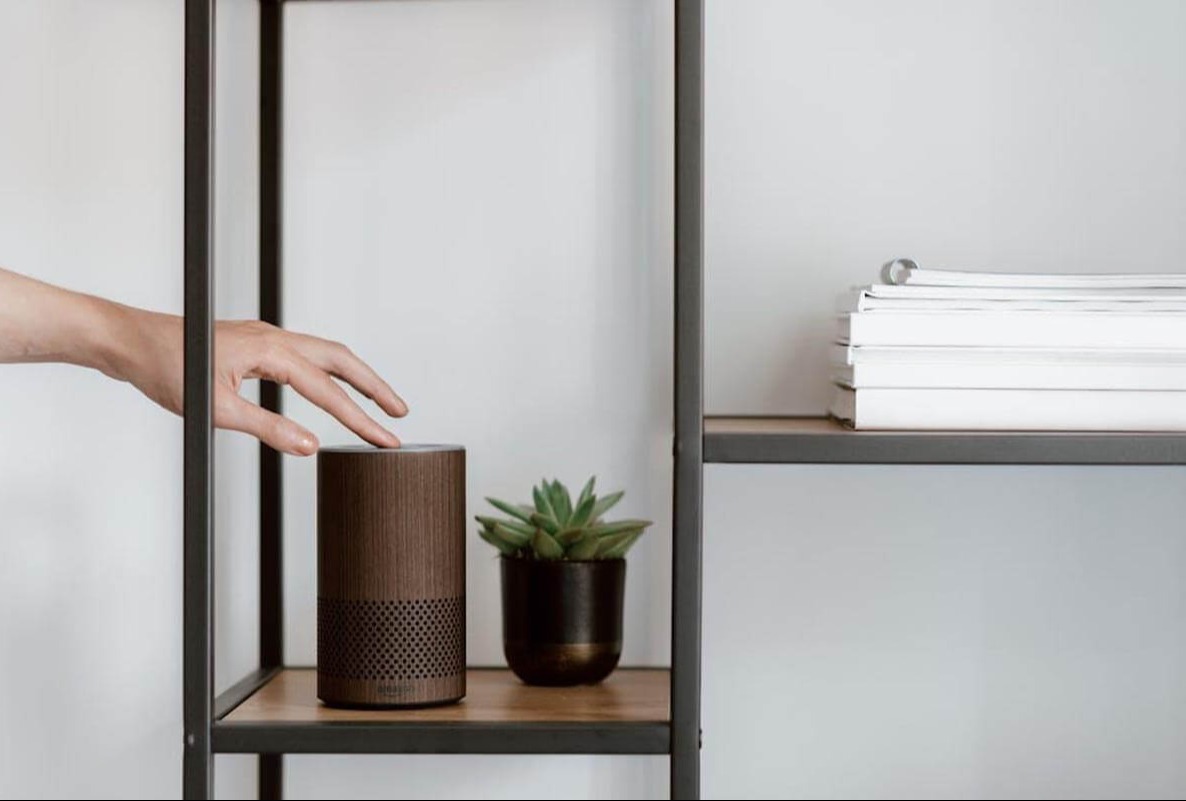
Photo Courtesy of Anete Lusina via Pexels
Personal security enhancements
Enhancing safety with smart home technology involves integrating devices that improve security and provide peace of mind. Here are key components:
- Smart locks - These allow for keyless entry via codes or mobile apps, enabling homeowners to grant access remotely, monitor who enters or leaves, and receive alerts about unauthorized attempts.
- Indoor cameras - Smart cameras enable homeowners to monitor their units in real-time through mobile devices. They can send notifications when motion is detected, helping to identify potential security threats.
- Motion sensors - These sensors can be placed at entry points or within the home to detect movement. They can trigger alarms or alerts, providing immediate awareness of unusual activity.
Installing additional security measures, such as security bars, window locks, or personal alarm systems, further protects personal belongings and provides an added layer of safety. This customizability allows residents to address specific concerns related to their living environment. However, make sure that you consult the Homeowners’ Manual on the rules on installing additional security systems.
Incorporating smart home technology not only enhances safety but also empowers residents to take an active role in their security, making you more vigilant and informed about your surroundings.
Get involved in the community
Knowing your neighbors, participating in community meetings, and forming a neighborhood watch program can significantly strengthen overall security. Building relationships with neighbors creates a sense of community and trust, encouraging open communication about safety concerns and shared responsibilities.
When residents are familiar with each other, they are more likely to notice suspicious activities and report them promptly. This heightened awareness acts as a deterrent to potential criminals.
Moreover, community meetings facilitate discussions on security strategies and shared initiatives, empowering residents to collaborate on safety measures and create a unified front against crime.
Neighborhood watch programs also encourage residents to share resources, information, and best practices for safety, further enhancing the community's preparedness for emergencies.
Finally, knowing whom to contact in emergencies or to report suspicious activities leads to quicker responses, whether through informal communication or established protocols within the watch program.
Community-building efforts create a safer living environment, where residents feel more connected and empowered to protect each other.
Staying updated on safety protocols
It is important to stay informed about your security updates in your condo community to aid in your taking proactive measures, participate in safety programs and build trust with your neighbors.
- Awareness of risks - Regular updates help residents understand potential security threats or vulnerabilities within the community, allowing them to take proactive measures to protect themselves and their property.
- Engagement in safety practices - Being informed encourages residents to participate in security protocols and initiatives, fostering a collective responsibility for community safety.
- Trust in management: Transparency about security measures builds trust between residents and the HOA, reassuring them that their safety is a priority.
HOA meetings serve as an essential platform for discussing security updates, sharing concerns, and providing feedback. They allow residents to:
Residents can directly inquire about security policies, upgrades, and incident responses during meetings or through a hotline. Meetings foster collaboration in addressing security issues and developing community safety strategies. Regular attendance keeps residents engaged and informed about ongoing safety efforts and upcoming initiatives.
Staying informed through HOA meetings empowers residents and strengthens the community’s overall security posture.
The financial benefits of condo safety
As previously discussed, enhanced security features contribute to higher property value. Properties with advanced security measures, such as surveillance systems, gated access, and on-site security, are more appealing to potential buyers who prioritize safety, leading to increased demand and higher sale prices.
Enhanced security reduces the likelihood of theft and vandalism, making the property more desirable. This can positively influence the overall reputation of the community, further boosting property values.
Moreover, lower crime risks often lead to reduced insurance premiums for condo owners. Insurance companies typically offer discounts for properties with robust security measures, leading to long-term savings.
Investing in a secure condo property not only increases immediate property value but also enhances resale potential over time. Additionally, lower insurance costs and reduced risk of loss or damage contribute to overall financial stability for owners.
Enhanced security features not only improve the living experience but also offer significant financial advantages, making secure condo properties a wise investment.
Why condos are the safest housing choice

Photo Courtesy of DMCI Homes
In summary, condos generally provide superior security compared to single-family homes and apartment buildings due to several key factors:
- Controlled success - Condo communities often have gated entries and secure access points, limiting entry to residents and authorized visitors, which reduces the likelihood of unauthorized access.
- On-Site security - Many condos employ trained security personnel and utilize surveillance systems that monitor common areas continuously, enhancing overall safety.
- Community vigilance - The close-knit nature of condo communities fosters a sense of collective responsibility, where neighbors are more likely to look out for each other and report suspicious activities.
- Advanced security features - Condos frequently include robust security measures, such as fire alarms, sprinkler systems, and emergency protocols, that surpass the safety standards often found in single-family homes or some apartments.
Aside from the security systems and culture of community vigilance, it is advisable that you also know about the HOA, their commitment to residents’ security, and how they addressed past incidents. Remember that investing in a condo is not just about purchasing property; it is also about investing in long-term peace of mind for you and your family.
Key takeaways
With enhanced security features and a supportive community environment, condo living can provide a safer, more secure lifestyle that fosters well-being and reassurance compared to apartments and houses. Keep in mind the following tips when choosing your family’s next home:
- Look for properties with advanced security systems, including surveillance cameras, smart locks, and intercom systems;
- Inquire about fire safety measures, disaster preparedness plans, and regular maintenance of safety equipment; and
- Understand the HOAs commitment to security, including any past incidents and how they were addressed.
It can also help to choose a reputable real estate developer that puts its owners and residents’ well-being on top of its priorities.
Stay updated with the latest news and announcements from DMCI Homes! Join the conversation today! You may download the app on Google Play or App Store or check out DMCI’s official social media accounts:Facebook, X, Instagram, and YouTube.
How do you feel about it?
